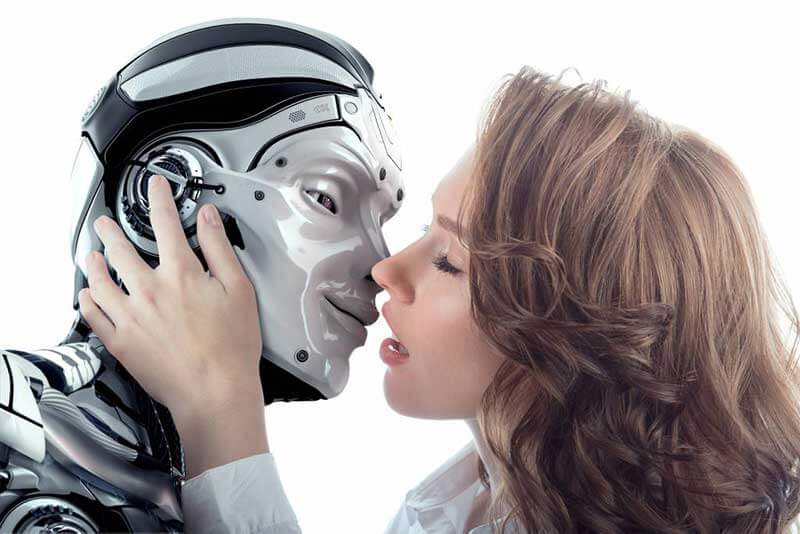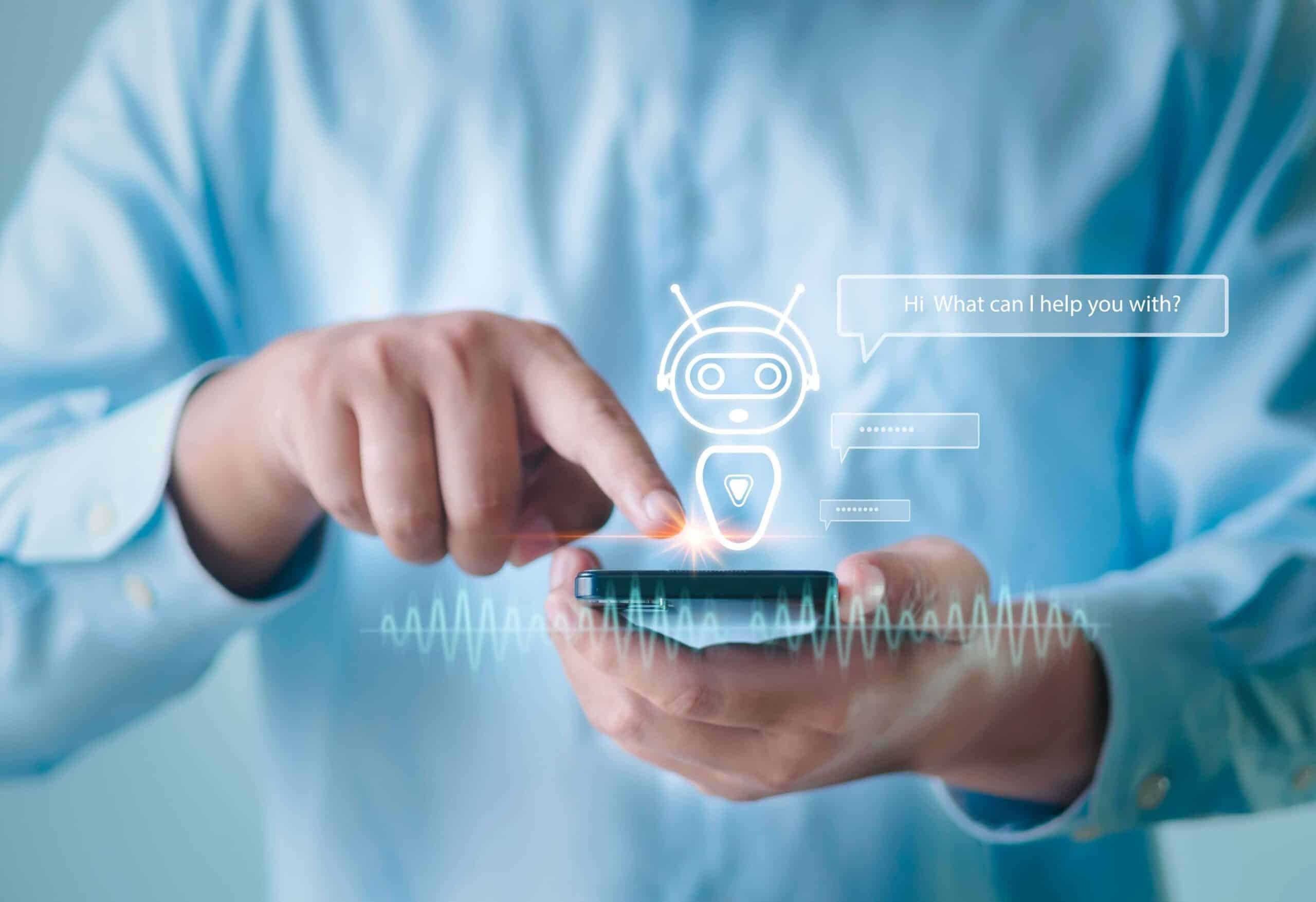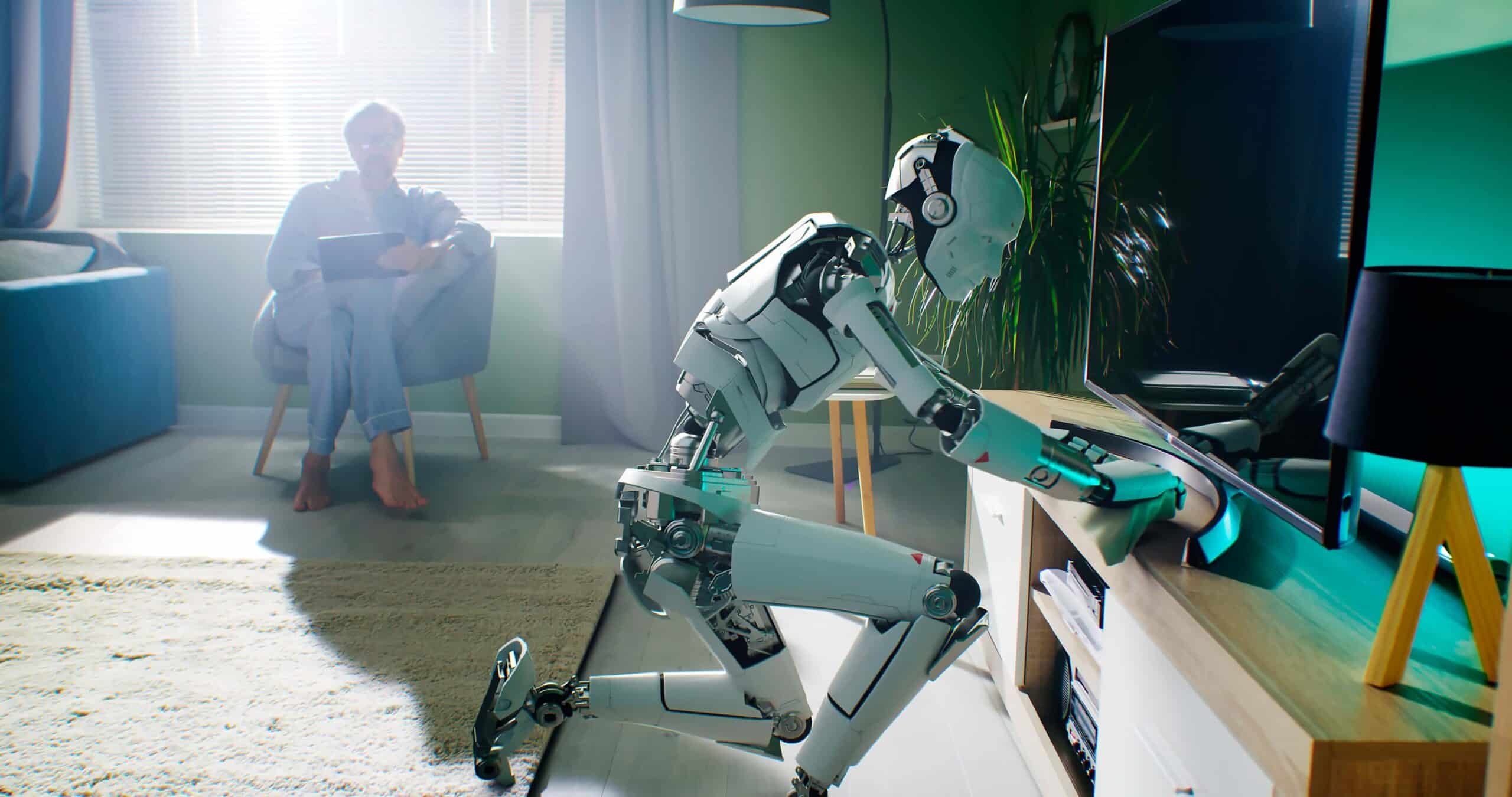- Are we really warming to the idea of sex robots?
- Sexbots could be a dangerous re-interpretation of the darker aspects of gender inequality
- We might start experiencing real emotions towards machines
- Should we be cautiously optimistic about sexbots?
- Sexbots – a solution to the problems associated with prostitution
The public seems increasingly accepting of sexbots, although many are concerned. Some worry that sexualised robots merely reinforce the worst prejudices about women. Others are concerned that these non-reciprocal relations are injurious. Still others worry that robots programmed to please will reinforce our innate narcissism. But there are those who support the non-judgmental affection a machine can offer and robots show great promise for sex work.
The sexbots really are coming. Before they arrive in full force, it’s far wiser to consider their ethical and social effects. What are public attitudes toward sexbots? How should society treat human-machine relationships? Should sex with robots be legal?
Are we really warming to the idea of sex robots?
Recent survey work has revealed some surprises. People are warming to the idea of sex robots, though surprisingly, millennials remain wary. Fully 70% of men, but only 37% of women,reported that they would consider a robotic partner. Moreover, when it came to infidelity, respondents indicated that sex with a robot was more similar to masturbation than cheating.
This representative sample also thought that sex with robots could help sustain relationships when one partner is unavailable or unable to have sex. Because robots aren’t considered people, availing oneself to a machine sex partner doesn’t fly the same red flags as infidelity. Such attitudes may seem far-fetched, but they are more common than you might think. At least 1 in 5 Britons, for example, reported that they would be willing to try sex with a robot.
As icky as this may be for some of us, Helen Driscoll, a psychologist and researcher at the University of Sunderland, recommends that we reconsider our sense of what is appropriate. “We tend to think about issues such as robotic sex within the context of current norms. But if we think back to the social norms about sex that existed just 100 years ago, it is obvious that they have changed rapidly and radically.” Not too long ago, an unmarried mother was considered a disgrace and homosexuality was illegal in the UK until 1967. Clearly, things have changed a lot.
Driscoll wants us to imagine our sense of the wrongness of machine love in just this light. Though some, if not many, find the prospect unattractive, she warns us to abandon our prudish conceptions of what counts as healthy sex. Whatever your opinion, we think you should consider the ramifications of relations with robots before they become widespread.

Sexbots could be a dangerous re-interpretation of the darker aspects of gender inequality
“…what if it’s your first time, your first relationship? What do you think of the opposite sex then? What do you think a man or a woman is? …It will get in the way of real life, stopping people forming relationships with normal people.”
— Noel Sharkey, Sheffield University
Kathleen Richardson, a researcher at De Montfort University and campaigner against sex robots, warns that sex robots are a dangerous re-interpretation of the darker aspects of gender inequality. Rather than thinking of robots as asexual, this new trend encourages us to create them in the image of woman as captured by the male gaze. The result is less a ‘female’ robot and more a hyper-feminine sexual robot.
Demanding submissive, subservient ‘female’ robots reinforces already harmful attitudes, she insists, and when men buy mechanical love, it’s not the robot they injure, but society as a whole by reinforcing the stereotype that women should be weak-willed and compliant, mere objects of sexual desire rather than thinking, feeling equals.
We might start experiencing real emotions towards machines
“…these human-AI/robot interactions are transactions and not reciprocal, and therefore probably not healthy for most people…”
—Julie Carpenter, University of Washington
The complex truth is that people experience real emotions towards things. It’s commonplace for people to form emotional attachments to cars, houses, or even a favourite pair of jeans. It’s not much of a step from there to form an emotional bond with a machine.
For instance, American soldiers in Iraq and Afghanistan have held funerals for IED robots ‘killed’ in the line of duty, naming their mechanical comrades much as soldiers in WW II named and painted their planes. Though soldiers denied thinking of the machines as human, Julie Carpenter, a researcher at the forefront to our emotional attachment to machines, saw the signs of intense feelings. “They would say they were angry when a robot became disabled because it is an important tool, but then they would add ‘poor little guy,’ or they’d say they had a funeral for it,” she told PBS.
This attachment is built on the foundation of the kind of affection you might have for a prized possession, but it goes deeper than that. These robots replace human or animal companions, doing things for their operators that were impossible for machines before. And it’s this kind of deep interaction and dependence that can create a strong emotional bond with a robot. Add to this human-like appearance and motion, and Carpenter suspects that attachment is inevitable.
Devlin rejects a ban on sex robots in part because advances in android technology allow us to explore new ethical, legal, and social ideas. Our attitudes about sex and sexuality are changing rapidly, and some people will inevitably be left behind.
Should we be cautiously optimistic about sexbots?
“…just as we should avoid importing existing gender and sexual biases into future technology, so we should also be cautious not to import established prudishness.”
—Kate Devlin, Goldsmiths, University of London
Proponents of sexbots remind us that the emotions we feel for things are real. Many people want a simple, uncomplicated, sexual relationship, a ‘friend with benefits’ with whom they never disagree. And many people find other human beings simply too challenging but still crave companionship and love. Humanoid robots, sexual or not, could provide the nurturing, supportive relationships they need. Opponents are right to worry that our preconceptions about gender roles and the sexual objectification of women might be instantiated in sex robots. Anyone can see they have a valid point.
But should we deny this form of non-judgmental companionship just because others find it, well, icky? David Levy doesn’t think so. The author of Love and Sex and Robots, Levy insists that Richardson’s concerns about sexbots reflect a failure of imagination. The idea that an android should just be a simple, submissive object, assumes that mechanical minds are crude or dull. But as recent advances in artificial intelligence attest, we will soon have companions that are difficult, if not impossible, to distinguish from their human counterparts. When machines use complex algorithms to simulate emotions, at what point does art imitating life become life itself? At that point, this transactional model may not apply.
When a sufficiently sophisticated machine expresses love for a human, Levy asks, why doubt that emotion, even if the machine was designed to feel as it does? And if our feelings for things are real, why doubt that this is meaningful love? In other words, if robotic love is in every sense indistinguishable from the real thing, isn’t it real love? We assume the organic or human or natural to be superior, but isn’t that just a senseless bias? Isn’t this just that same old prudishness?
People like Richardson and Devlin are concerned that human-robot relations may be more akin to the slave trade than modern marriage. But modern marriage is no cure for the problems of loneliness and the desire for companionship, at least not given current divorce rates. Indeed, it may be robots that solve that problem, too. Levy thinks that by mid-century, ultra-capable androids won’t merely threaten our jobs, they’ll replace our partners as well.
“…Their capacities for serving as our companions, our lovers, and our life partners will in many ways be superior to those of mere mortals.”
Perhaps mechanical spouses are the answer–or perhaps our desire for perfect partners says something about our own insecurities and narcissism.
https://www.youtube.com/watch?v=e2f_j5ojKJo
Fawning sexbots could reinforce our worst personality traits
Perhaps this is the most troubling aspect of the arrival of sexbots. Given as we are prone to self-absorbed narcissism as it is, do we really need anything that magnifies that? Stowe Boyd predicts that within ten years, “robotic sex partners will be commonplace, although the source of scorn and division, the way critics today bemoan selfies as an indicator of all that’s wrong with the world.” We can certainly see why Boyd thinks as he does: fawning sexbots could reinforce our worst personality traits, amplifying Richardson’s concerns about their broader negative influence on our already troubled culture.
Selfie culture and social media are substantive changes in how we relate to one another, and many are not impressed. The more time we spend on our smartphones, the less we spend with the people who are right there – and we’ve all suffered through a dinner or drinks with a friend who couldn’t put his phone down. Now multiply that with machine companions attuned to our every need. Will anyone want the complicated, unsatisfying human interaction anymore? And if sexbots can be made hyper-attractive and willing to please, will we still want human partners? How will we feel towards our imperfect wives and husbands?
Sexbots – a solution to the problems associated with prostitution
“Robot sex offers a solution to a host of problems associated with the sex trade.”
— Ian Yeoman and Michelle Mars, Victoria University, Wellington and Endeavor College of Natural Health
It’s also true that there are real benefits to sexbots. The brothels and bedrooms of the future may find us engaged with robotic lovers every bit as interesting as human beings. And these machine partners can solve a lot of problems.
Experts see sexbots as a ‘great attractor’, pulling a constellation of trends together. From human trafficking to unhappy marriages, from fear of disease to the profitability of sex tourism, researchers like Yeoman and Mars see robots designed for sex as the future of prostitution. “Given the rise of incurable STI’s [sic], including emergent strains of gonorrhoea and HIV/AIDS throughout the world and the problem associated with human trafficking and sex tourism it is likely that we will see an increase in demand for alternative forms of sexual expression.”
John Danaher, a lecturer in law at the National University of Ireland-Galway,notes specific advantages robot prostitutes bring to the bedroom. Human prostitution is widely illegal; sex robot production is not. In contrast to human prostitution, there are far fewer ethical challenges. Sexually transmitted infections are easy to prevent with robotic lovers. And sex robots could be produced in large numbers and easily modified to accommodate changing desires.
That’s significant. If sexbots could clean up prostitution, should we encourage robot brothels? It’s hard to say. But what is clear is that the decision is nearly upon us.
Inspired by this article? Download the free e-book “Sexbots – the shape of things to come”, 85 pages of fascinating facts, quotes, case studies, research and videos about the rise of the sex robot.





